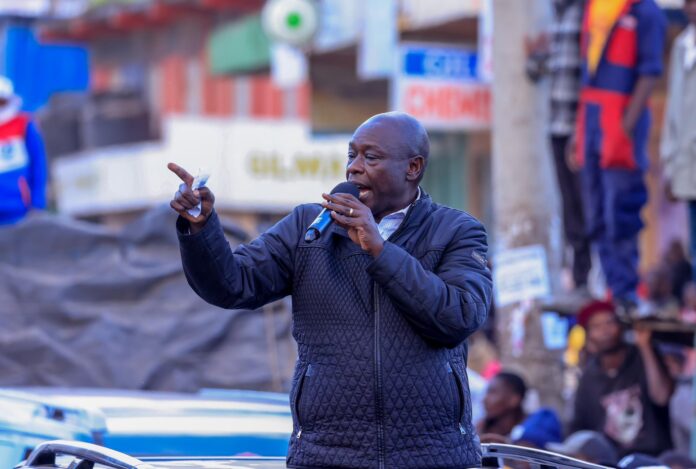Security agencies in Embu County have summoned four bloggers who allegedly threatened former Deputy President Rigathi Gachagua after he announced that he would visit the county for a campaign tour.
Confirming the summoning of the individuals on Thursday, November 13, Embu County Commissioner Jack Obuo said that security agencies, led by the Directorate of Criminal Investigations (DCI), shall interrogate the four to understand their motive and the context of their social media messages.
The four allegedly threatened the Democracy for the Citizens Party (DCP) leader after he said that he would visit the county to campaign for Newton Kariuki, who is vying for the Mbeere North Member of Parliament seat in the upcoming by-elections.
“We cannot prosecute anyone before we understand the context in which they gave those statements, and today we have summoned those who gave the statements,” Obuo said.
“From there, the DCI and police will decide whether prosecuting the four will be appropriate or they will opt to open investigations,” he added.
The summoning follows President William Ruto’s signing into law the Computer Misuse and Cybercrimes (Amendment) Act 2024, which aims to regulate the country’s online ecosystem.
The law states that anyone who communicates with an individual in a manner that is likely to cause violence against them, property damage, or detrimentally affect them will be liable to prosecution.
Such a person faces a fine not exceeding Ksh20 million, imprisonment for a term not exceeding 10 years, or both.
Critics have argued that the new law appears less about regulating genuine cybercrime and more about political control and monitoring of online spaces.
Furthermore, the law gives the government powers to block websites or apps, remove content, or shut down digital platforms that are determined to be dispensing harmful content.
The law, signed by the president on Wednesday, October 15, 2025, has drawn strong criticism from the public, with many describing it as a move to stifle dissent, investigative journalism, and legitimate online expression.
Critics have argued that the new law appears less about regulating genuine cybercrime and more about political control and monitoring of online spaces.



















